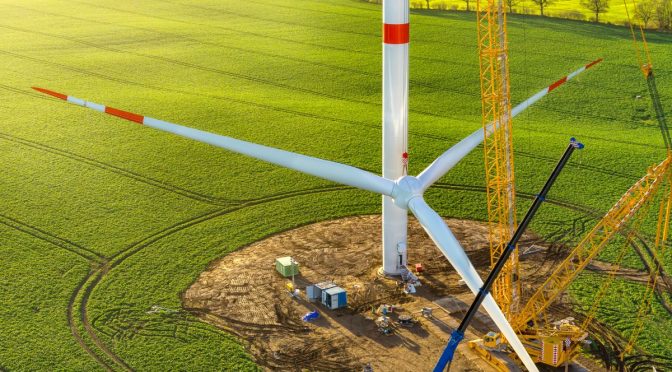The European Commission is preparing a Net Zero Industry Act and changes to Europe’s Electricity Market Design. CEOs of Europe’s leading energy companies say it’s essential to get the detail right in these proposals.
Francesco Starace, CEO Enel: “The energy transition must accelerate if we want to deliver stable, secure and competitive electricity to our European customers. The recent data on new wind investments has shown that many hurdles are preventing this transition. We must update our market design with long term price signals and facilitate RES permitting, while recognising the achievements of the last 20 years of the common energy market.”
Ignacio S. Galán, Executive Chairman Iberdrola: “The EU installed 16 GW of wind in 2022, only half of what’s needed to deliver on REPowerEU. We need investor certainty to get back on track. Imposing CfDs on new or existing projects, or extending emergency measures will not serve Europe’s purpose in delivering climate neutrality while protecting consumers.”
Miguel Stilwell d’Andrade, CEO EDP: “Europe needed to address high energy prices which have taken a toll on families and businesses. But uncoordinated and poorly designed revenue caps are not the solution. They are contributing to a standstill in wind investments across Europe at a time when investors’ confidence is key to achieving our ambitious renewable targets. Revenue caps must not become a permanent piece of the market design.”
Sven Utermöhlen, CEO Offshore Wind RWE Renewables and WindEurope Chairman: “The targeted Market Design reform should restore investor confidence and strengthen it for a long period of time. Investments in wind fell sharply in 2022: €17bn compared to €41bn in 2021. And we saw no Final Investment Decision in any offshore wind farm last year. It’s time to get wind investments back on track.”
Rasmus Errboe, CEO Europe, Ørsted: “Europe’s response to the US IRA must support the expansion of our wind supply chain, and boost homegrown power generation to beat the energy crisis. Building wind at scale starts with clear investment signals based on a stable and robust electricity market design, adequate incentives for the uptake of e-fuels and forward-looking infrastructure build-out.”
Henrik Anderson, CEO Vestas: “The EU Net Zero Industry Act must invest in expanding grids, ports, roads, vessels, access to raw materials, and new production facilities. Building scale across these areas is critical to support growth in wind energy, but it’s not the whole story. Public financial support on its own cannot sustain European competitiveness in wind, a functioning market that creates demand will. We therefore need faster permitting, as scaling up without a market is not sustainable.”
Jochen Eickholt, CEO Siemens Gamesa Renewable Energy: “To deliver on an energy transition made in Europe we need auctions that do not focus on price only. Auctions need to reward the actual value of a European renewable energy supply chain: security of supply, sustainability, technological innovation, recyclability, and engagement with local communities.”
Jan Kjaersgaard, CEO Offshore Wind, GE Renewable Energy: “The EU has an opportunity to use the Net-Zero Industry Act to move on from the idea that you should only build renewables based on their price. Instead, policymakers should set clear standards and criteria that reward the real value of renewables like offshore wind. Such an approach can help meet localisation and other economic development goals while delivering important environmental benefits that renewable energy sources deliver.”
Fred van Beers, CEO SIF: “Europe’s wind energy supply chain is not big enough to meet the huge volume of new wind farms Europe wants. The need for investments in new manufacturing is especially acute for offshore wind. There are particular bottlenecks in making the foundations for offshore turbines. Europe can make around 500 of them a year today but needs to be making 1,500. The EU needs to help us scale up.”
José Luis Blanco, CEO Nordex: “The EU should give maximum possible flexibility to national Governments in the State Aid Guidelines on how they support Europe’s renewables industries e.g. through loans or guarantees. The idea that only France and Germany will benefit is incorrect. Spain, Poland, Greece and the Netherlands also know the structural requirements and are all looking to invest in their wind supply chains. Other smaller Member States want to as well.”
Felix Henseler, CEO ZF Windpower: “Whatever public financial support the EU offers for clean energy supply chains, it should be allocated on an open-door basis. Don’t have long tender processes or calls for proposals. You don’t know if you’re getting anything for months. Our competitors will already be investing. The power of the IRA is its speed and simplicity.”
Giles Dickson, CEO WindEurope: “The EU needs to mobilise the firepower of the European Investment Bank to support renewables supply chains. And the EIB should be able to finance individual factory investments. And don’t insist that things are always super innovative. This is a volume not a technology challenge.”
« SF6 phase-out is positive but must ensure safe operation of existing grid infrastructure


